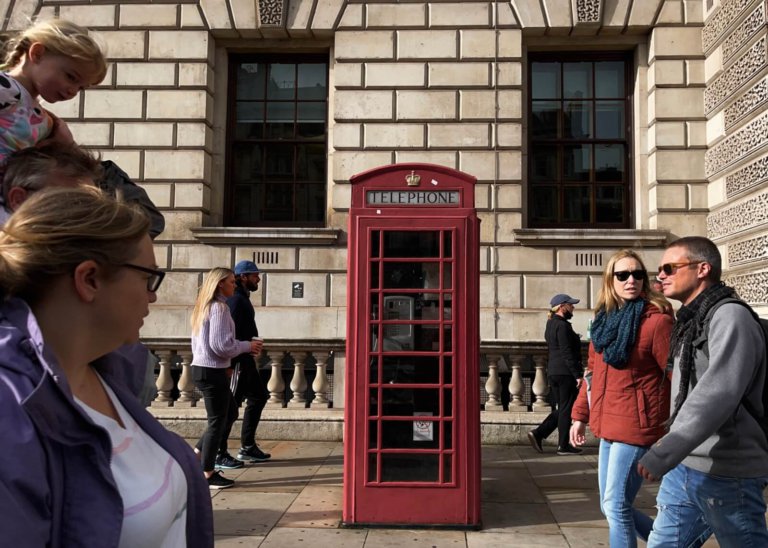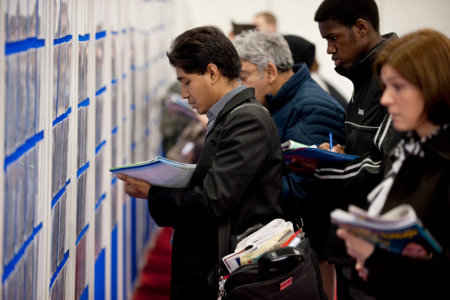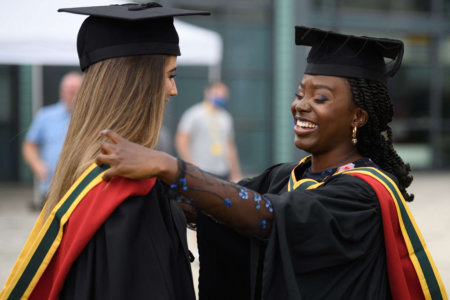
The UK is not only a bastion for higher education, but a major allure for some international students is its post-study work opportunities. There are many ways for international graduates to stay in the UK after completing their studies, one of them being the UK Global Talent Visa.
This visa allows a candidate to work in the UK if they are a leader or potential leader in academia or research, arts and culture or digital technology.
Michelle Hua is a UK Global Talent Visa coach who helps highly skilled tech entrepreneurs and talent in digital technologies.
The UK Global Talent Visa in digital technologies is a two-stage process; Hua helps applicants with the Stage 1 endorsement process, with a promising success rate.
“I received the UK Global Talent Visa to live and work in the UK and became the ambassador for the #TechNationVisa Scheme,” she told Study International in an email interview.
“In just three years, I received my Indefinite Leave to Remain Visa in the UK and became a British Citizen as a result of being a recipient of the UK Global Talent Visa. I have helped over 500 highly skilled tech entrepreneurs and talent by coaching them on the Stage 1 endorsement process. I have a 90% success rate while the endorsement rate is 54%.”
Before becoming a UK Global Talent Visa coach, Hua held numerous jobs; this includes the founder of a UK wearable tech startup, Made With Glove, and a solicitor in Australia and New Zealand.
After becoming a UK Global Talent Visa recipient, she wrote a blog about her journey that went viral. Numerous people contacted her about how they could get the endorsement and visa.
As the recipient of the UK Global Talent Visa, Hua knew firsthand the challenges of applying for the visa. This includes managing her startup while completing the application in time, which required plenty of preparation and gathering documents, including getting letters of support from industry experts.
“The criteria were very vague in 2016 compared to now (2022) but also because I didn’t know who else was applying for it so I was a bit unsure about what evidence to present and how to present it,” she said.

Before becoming a UK Global Talent Visa coach, Hua held numerous jobs, including the founder of a UK wearable tech startup and a solicitor in Australia and New Zealand. Source: Michelle Hua
She also had to contend with whether or not she was “good enough” to apply for the visa.
“You have to be endorsed with exceptional talent or exceptional promise. So you have to have the mindset of, ‘I’m an exceptionally talented leader in tech or potential to be a leader in tech’,” she said.
“No one ever thinks they are exceptionally talented, so that was difficult to overcome. I just focused on my achievements in the tech sector and produced evidence of my achievements. My reference letters were also very good.”
Because of her challenges, the Australian-British dual citizen knows exactly what applicants go through, and coaches her clients through this process, including easing their concerns and helping them structure their evidence which highlights their achievements.
Common mistakes to avoid when applying for the UK Global Talent Visa
Based on Hua’s experience as a coach, some of the common mistakes that people often make when applying for the UK Global Talent Visa include:
- Not highlighting their achievements enough and using the word “we”. At work, candidates are a team but in the application, assessors want to know what candidates did, so they should use the word “I”.
- Assuming the assessor knows about their projects and how they impact the tech sector. Applicants should tell their story and be detailed and specific.
- Assuming the assessor clicks on links. If anything is important, the evidence must be presented and explain why it is relevant and how it meets the criteria. Links are used as a reference to the source of the material only.
- Underestimating all the extracurricular activities they do, or can do in the tech sector. Hua believes it is as important as working in the tech industry, so adding value to the tech sector by volunteering at community events or by sharing knowledge and expertise in the tech community is important.

In 2019, Hua was listed in the Top 100 Influencers on Gender Equality and Diversity for her work in advocating for women and diversity in tech. Source: Isabel Infantes/AFP
Hua’s tips for international graduates who are looking to apply for the UK Global Talent Visa include:
- Candidates must be working for digital technology companies that develop or build products. They can be either a business applicant or a technical applicant, but the company must be building its own products that it sells to its customers.
- Volunteer and give back to the tech sector or the community and keep evidence of it.
- Work on their personal brand to show their thought leadership, and not just about the candidate working for a tech company.
- Apply for industry awards in the tech sector, rather than merely focusing on internal company awards.
- Produce a quality CV — more details here.
- Start early.
Hua explained that if a candidate is unsuccessful, the good news is that they can appeal the decision or resubmit a fresh application. “They can apply as many times as they like, so all is not lost if they are unsuccessful. The assessors provide good feedback so candidates can address the feedback with new evidence and apply again,” she said.










